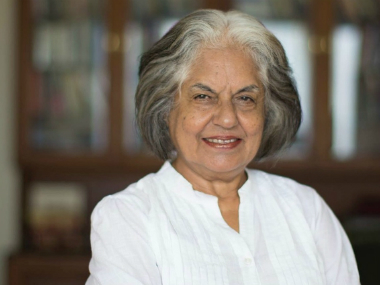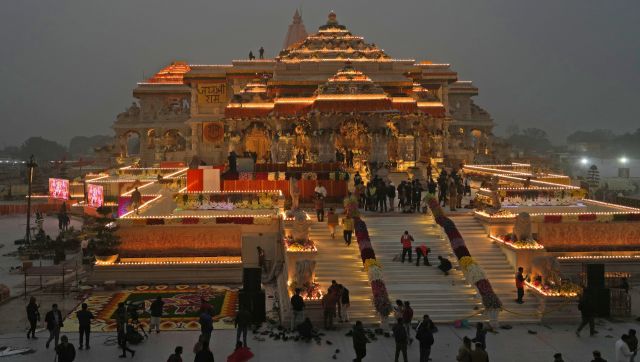The draconian Foreign Contribution Regulation Act, 2010 (FCRA) is once again in the news. The NGO – Lawyers’ Collective’s (LC) – license under the FCRA has been suspended for a period of six months for three apparent reasons – discrepancies in the statements on funds received and utilised by LC from “foreign sources”, rallies of a “political hue” undertaken by it, and that Indira Jaising, secretary of LC, was a “government servant” when she received the funds from “foreign sources”.
Following which there was a violation of Section 3 of the FCRA which expressly prohibits government servants from receiving the funds. Specifically, the MHA notice contends that Jaising, who was also an Additional Solicitor General (ASG) appearing on behalf of the central government in the Supreme Court between 2009 and 2014, could not have lawfully received such funds.
While LC would no doubt have the necessary factual responses to the first and second allegations, this piece focuses on the third allegation relating to Jaising’s position – a pure matter of legal interpretation of the FCRA provisions. LC’s response doesn’t dispute that foreign funds were received between 2009 and 2014 in the time in which Jaising was an ASG. What it does dispute is MHA’s interpretation of the FCRA; that this amounts to a violation of Section 3.
On this issue, the MHA has got the law completely wrong. LC’s response that an ASG is not a government servant, even though she may be a “public servant” is entirely justified in law.
The terms “public servant” and “government servant” are often used interchangeably in common parlance, but in law they mean very different things. For the purposes of the Prevention of Corruption Act, 1988 , a judge of the High Court or Supreme Court is a “public servant” even though she would definitely not be a “government servant ”. All government servants are necessarily public servants, but all public servants are not necessarily government servants. Would an ASG, a law officer of the central government engaged to argue cases in court and offer legal advice, be a “government servant”?
What the law says
Section 3 of the FCRA bars eight categories of Indian citizens from accepting “foreign contributions”. Sub-section (c) bars a “Judge, government servant or employee of any corporation or any other body controlled or owned by the government” from receiving foreign contributions. The FCRA itself does not define who is a “government servant”.
Section 2(2) of the FCRA imports definitions of words not defined in the FCRA itself from the Representation of the Peoples Act, 1950 , Representation of the People Act, 1951 and the Foreign Exchange Management Act, 1999 . None of these laws also contain a definition of the phrase “government servant”.
So where do we look for the definition of the term “government servant”?
What the government’s own rules say
While no law made by Parliament provides us with a comprehensive definition of a “government servant” we find a reasonably comprehensive definition of the term in the Central Civil Services (Classification, Control & Appeal) Rules, 1965 (CCA(CCS) Rules) framed by the president, i.e., the central government. These rules have been framed under Article 309 of the Constitution of India which empowers the president to make rules for “services and posts in connection with the affairs of the Union”, and the terms and conditions of service of those in these services and posts. Rule 2(h) of the CCA (CCS) Rules define “government servant” to mean someone who is a member of an All India Service (like the IAS or IPS) or the holder of a “civil post”.
A “civil post” is any post under the Government of India (GoI) which is not in the defence services. As the Supreme Court has clarified , any person who is involved with the GoI in any way is not holding a “civil post” – it is only those who are in a master-servant relationship with the GoI, i.e., directly employed by the GoI who can be said to be holding a “civil post”. The central government’s own rules, as the apex court has interpreted and clarified them, suggest that a “government servant” is the one who is an employee of the central government.
A law officer is not an employee of the government
Jaising, on the other hand, was an ASG to the government of India – a law officer so to speak and governed by completely different set of rules, namely the Law Officer (Conditions of Service) Rules, 1987 . Unlike an IAS officer or other employee of the government, she was entitled not a salary but to a retainer. It was not a permanent job but a three-year engagement by the central government, terminable at the will of either party with due notice. These rules don’t prohibit her from practicing law on behalf of private clients – so long as she takes the government’s permission and is not in a conflict of interest situation. Indeed, many eminent law officers including former attorney generals of India have appeared for private parties in the Supreme Court with no apparent conflict of interest.
Attorneys general, advocates general and other law officers are not supposed to be employees of the government. While they undoubtedly appear and act on behalf of the government, they are not beholden to it. They exercise their independent judgment in advising the government on matters of law and are not bound to toe the party line so to speak.
The finest exponent of this would be India’s greatest constitutional scholar, HM Seervai, who served as Maharashtra’s advocate general for nearly three decades, across governments. He quit only when the government did not take his contrary advice seriously and expected him to fall in line.
It makes sense therefore that the FCRA only prohibits “government servants” and not all “public servants” from receiving foreign contributions. A government law officer may legitimately advice a foreign company and be paid for it. She may even appear on behalf of such a company against a third party where the government has no role in the matter. She may even serve on foreign commissions and committees, as the late Goolam Vahanvati did . Nothing in the scope or intent of FCRA is intended to forbid law officers from doing what they are otherwise legitimately permitted to do so under the Rules applicable to them.
The MHA’s strained legal interpretation of the clauses of the FCRA in LC’s case bears hallmarks of the “tax terrorism” that the Income Tax department is often accused of when it comes to matters of international tax. The text of the law is not a shapeless lump of dough to be stretched and kneaded into whatever suits the specific needs of the day. Such a short-sighted approach in any area of administration only diminishes the confidence of the citizens and investors in the government. Matters are still at the show cause notice stage and one hopes that better sense prevails in the MHA.


)




)
)
)
)
)
)
)
)